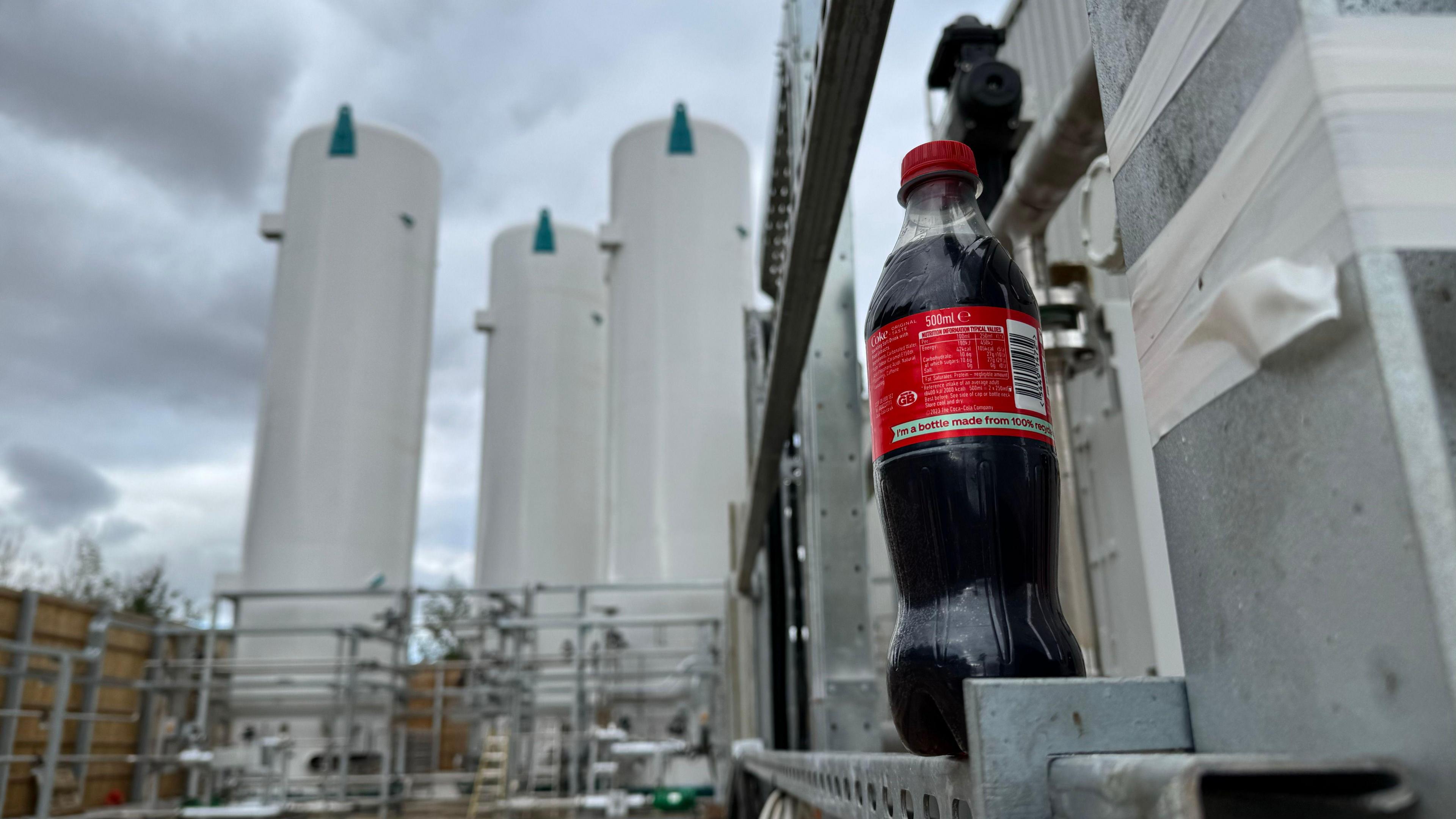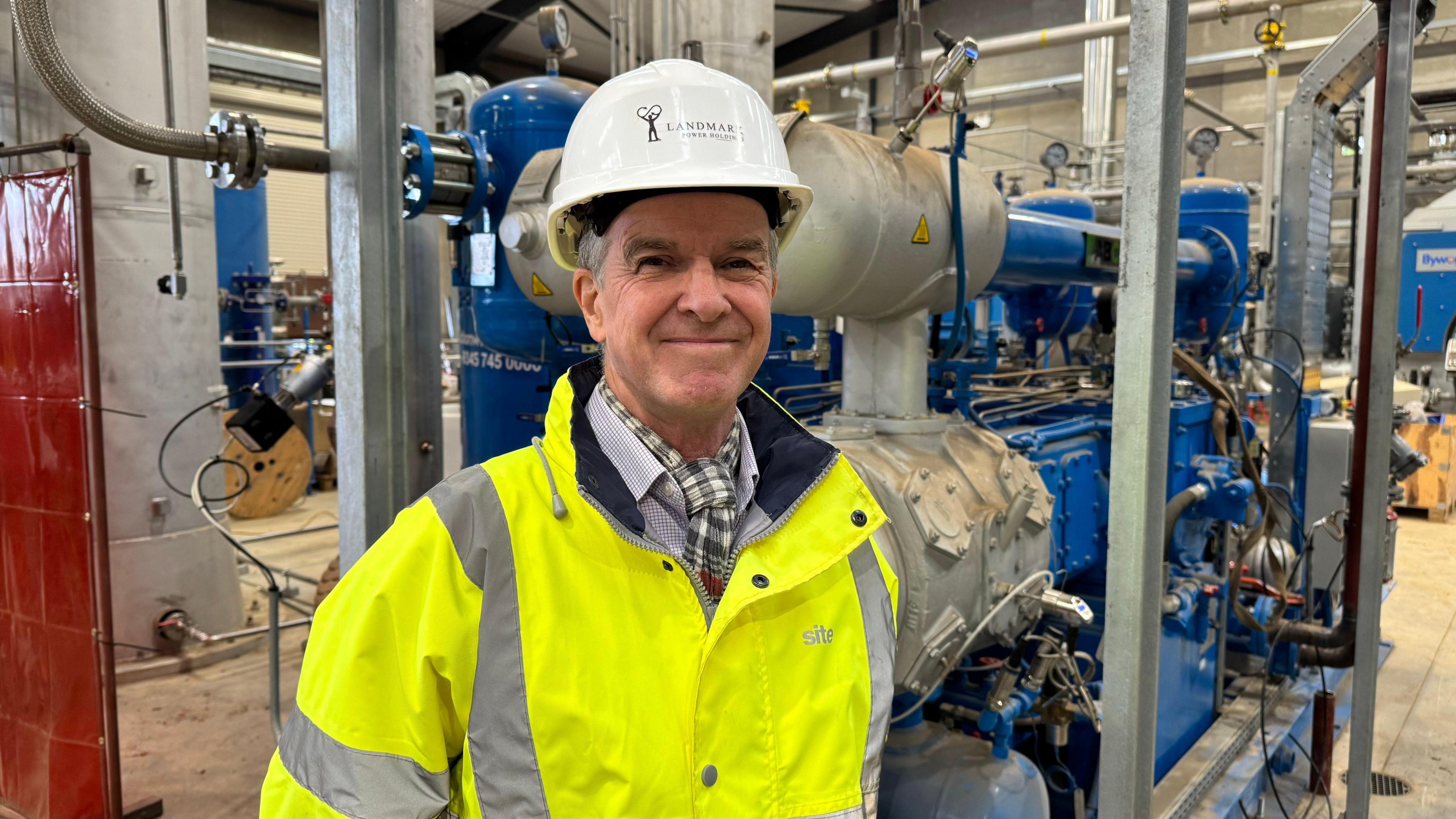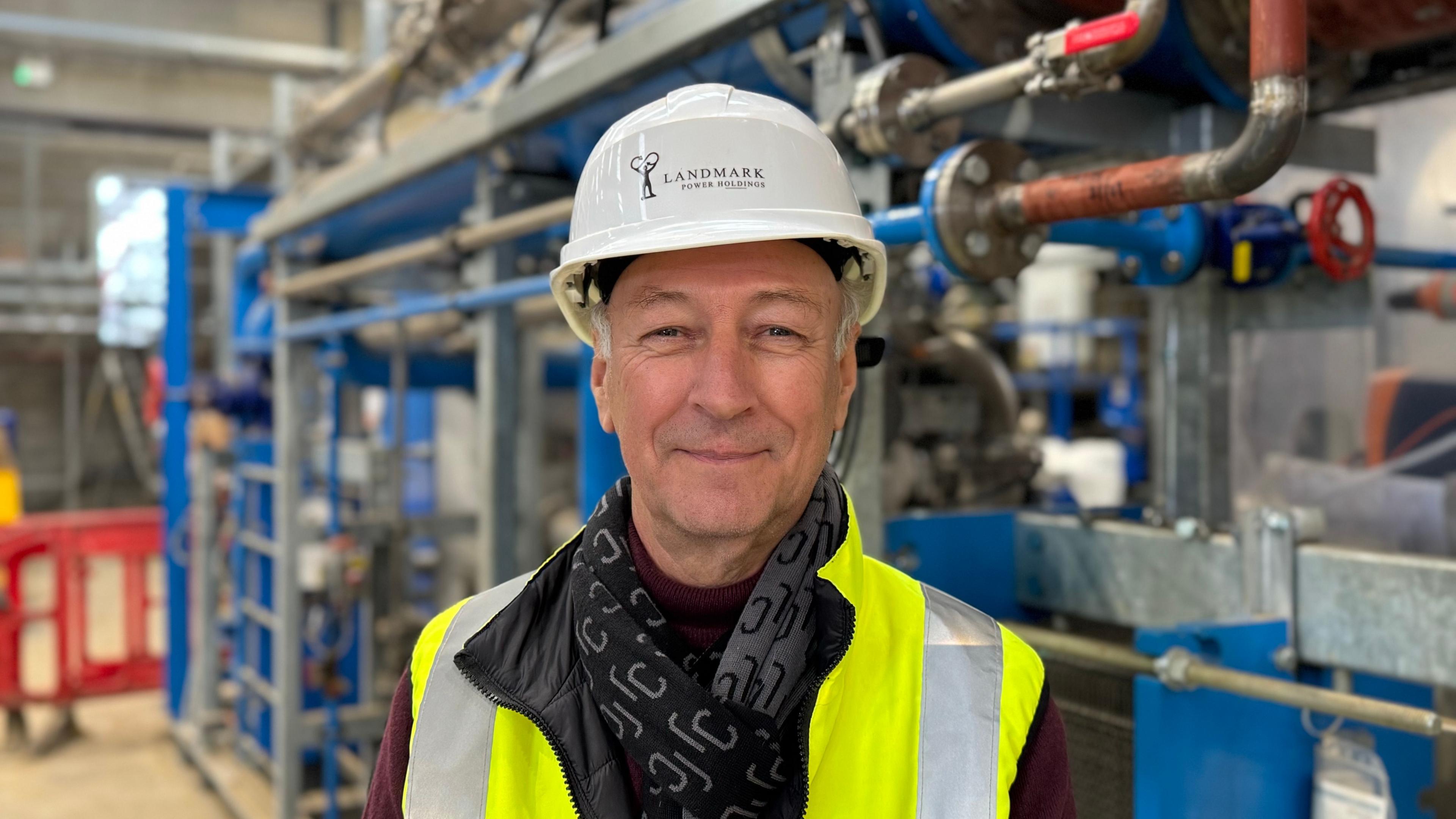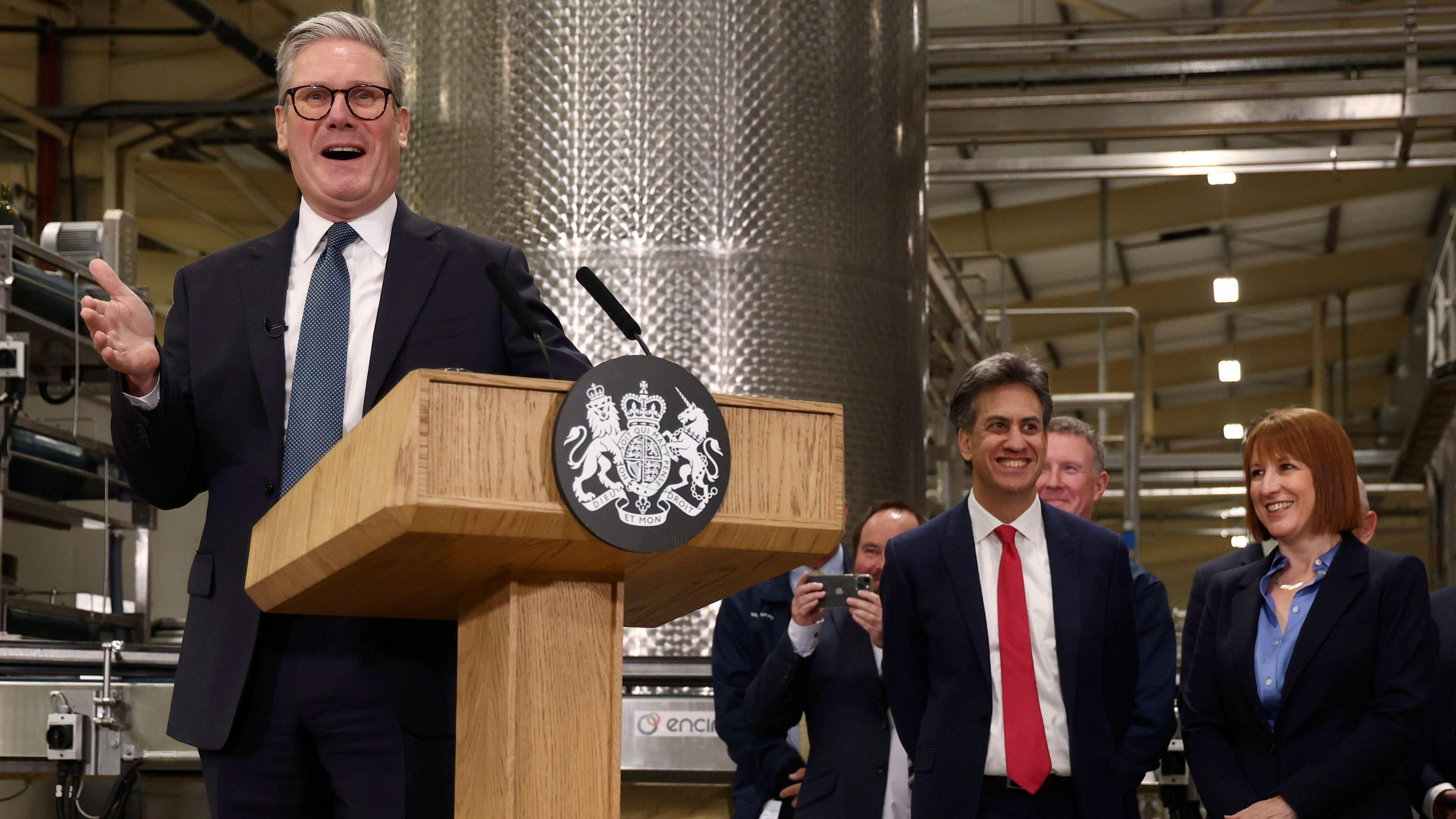New plant captures carbon dioxide for fizzy drinks

Captured carbon dioxide from electricity generation is used for fizzy drinks
- Published
A new gas-fired power plant in Nottinghamshire plans to turn planet-warming carbon dioxide into an ingredient for fizzy drinks.
The 10-megawatt project at Rhodesia outside Worksop uses waste heat to capture and clean the gas which would otherwise contribute to climate change.
The plant earns valuable carbon credits because the food grade carbon dioxide replaces manufactured gas.
Investors say the modular plant is also designed to provide flexible power for the national grid when renewable energy fluctuates.

Chief technical officer Roddy Elder says reusing carbon dioxide is better for climate change than releasing it into the atmosphere
Chief technical officer Roddy Elder told the BBC two sets of cylinders capture the carbon dioxide using a liquid solvent.
The solvent then releases the gas to be cleaned and tested to ensure it is pure enough to be used in the food industry.
He explained the plant uses existing technology applied in a different way.
"Using solvents to capture CO2 has been used for many years to purify the air in nuclear submarines on a long patrol," he said.
"It's much better than burning gas in a traditional power station. We're burning fuel, but the fuel itself is not contributing to global warming."

Founder Michael Avison says the plant is designed as part of a circular economy
Co-founder Michael Avison says the plant will supply electricity for about 10,000 Worksop homes and the captured CO2 will end up in drinks at the local pub.
"It's about a circular economy," he says. "There is nothing wrong with fossil fuels if we clean them up."
The plant is designed so it can be powered up to support renewables on the national grid when the wind does not blow or the sun does not shine.
Mr Avison first had the idea for a more sustainable power plant 15 years ago but carbon credits became too cheap to make it pay.
Credits cost more now but it is the addition of a valuable by-product that has made the whole project financially viable.
No money has come from the UK government - instead the £40m price tag has been met by private investors who specialise in energy transition.
The company says its modular template can be adapted with the waste heat used for district heating or industrial processing.
Carbon dioxide could also be transported for permanent storage underground.
Investors now hope to attract interest from others to scale up their design for use around the world.
Get in touch
Tell us which stories we should cover in Nottingham
Follow BBC Nottingham on Facebook, external, on X, external, or on Instagram, external. Send your story ideas to eastmidsnews@bbc.co.uk, external or via WhatsApp, external on 0808 100 2210.
Related topics
- Published4 October 2024

- Published24 June 2019
